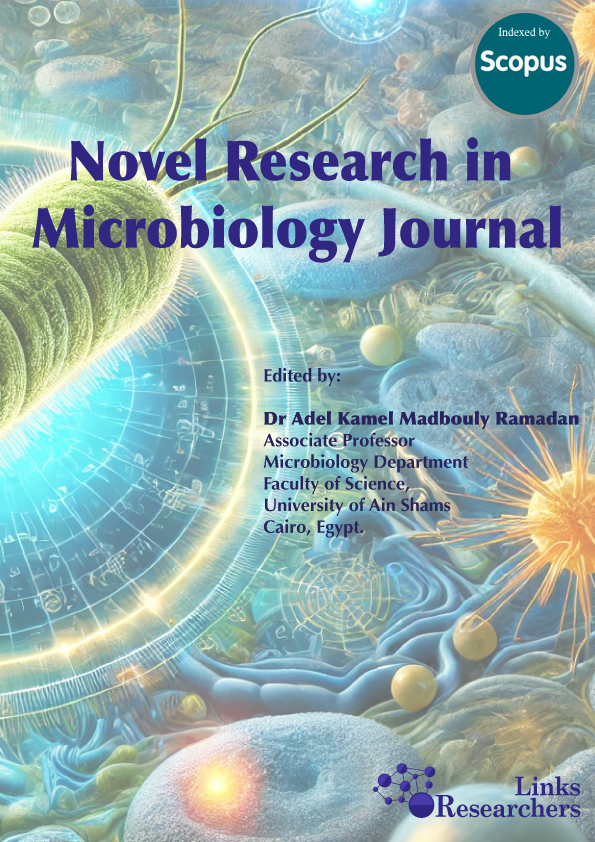Antitumor efficacy of biosynthesized manganese nanoparticles
Novel Research in Microbiology Journal (2019), 3(3): 387-395
Antitumor efficacy of biosynthesized manganese nanoparticles
Eman Abuheiba1*; Sawsan M. El-Sonbaty2; Nahed Abdel-Samed3; Eman Kandil1
ABSTRACT
This study aimed to evaluate the in vitro and in vivo antitumor potential of manganese nanoparticles, in management of hepatocellular carcinoma (HCC) induced in rats. Manganese nanoparticles were biosynthesized using Lactobacillus helveticus cells. In vitro study of manganese nanoparticles on HepG-2 (human cell line of a well-differentiated HCC) revealed an IC50 of 21.5 mM. The in vivo efficacy of manganese nanoparticles was evaluated by measuring the antioxidant activities against oxidative stress caused by diethylnitrosamine (DEN) in rates liver tissues. This treatment significantly improved the alanine aminotransferase (ALT) activity and total protein compared to DEN group. Results showed that manganese nanoparticles were effective in treatment of HCC induced by diethylnitrosamine (DEN) in rats. So manganese nanoparticles can serve as a good therapeutic agent for the treatment of hepatocellular carcinoma, and deserve further studies in the future.
To share on other social networks, click on any share button. What are these?






